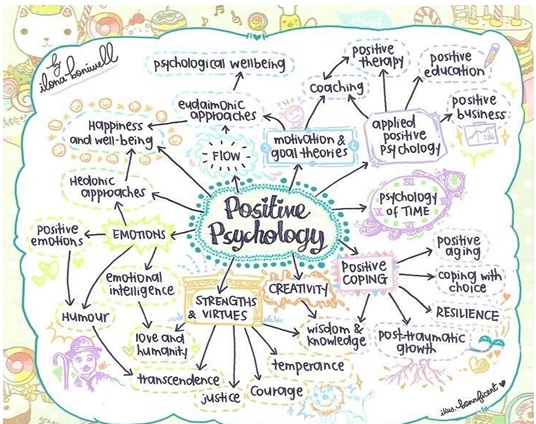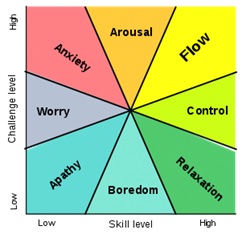This week I attended a two-day (virtual) Positive Psychology course, via the British School of Coaching. As I’ve developed as a leader and coach, so too has my interest in Positive Psychology, so it was great to dip my toe into the water and hear about some of the principles behind it from an expert in the field, our course tutor, Ana Nasif.
What is Positive Psychology?
Although many formal definitions exist, this one from Ana really resonated with me:
‘Positive Psychology is focusing on what is already there, as opposed to what’s missing’. When I think about what this means in the context of leadership – the possibilities are exciting and endless…
I found this chart, which was included in our hand-out notes (illustration by Ilona Boniwell), really useful – it maps out the scope of Positive Psychology. I think it’s powerful to see wellbeing and happiness as key pillars which are fundamental to motivation, resilience and ultimately, performance. All of these elements stacking up behind peak performance really makes sense to me.

Here are a few brief take-outs which I plan to start to read more around/experiment with:
- Strengths theory – focusing on identifying and using individual and team strengths as opposed to (as we are so often conditioned to) looking at ‘fixing’ weaknesses only as a way to drive performance
- Human flourishing – this means being ‘more than OK’. An internal sense of feeling on track, rather than seeking perfection. How can I unlock this in teams I work with?
- Promoting positive emotions – we took part in an exercise where we learned how to ‘switch on’ positive feelings or an optimistic mindset. Useful for us all at the moment!
- Flow – see the diagram below, which explains a lot about how we feel on a daily basis and explains for me why sometimes anxiety and worry were felt over flow. Where challenge is high and skill is high, we can get into ‘flow’, which not only feels great, but allows superior performance. We talked about ways to get ‘in flow’ more often, both as individuals and as teams

- Finally, we talked about PPIs (Positive Psychology interventions), such a gratitude, meaning and kindness and explored how we might use these in our coaching and leadership to unlock positive outcomes for those who we are supporting.
Clearly, this is just the beginning! As a leader and a coach who genuinely finds fulfilment in helping others be their best selves, this seems like a rich area for me to explore further. I’ll continue to reflect as I do…
